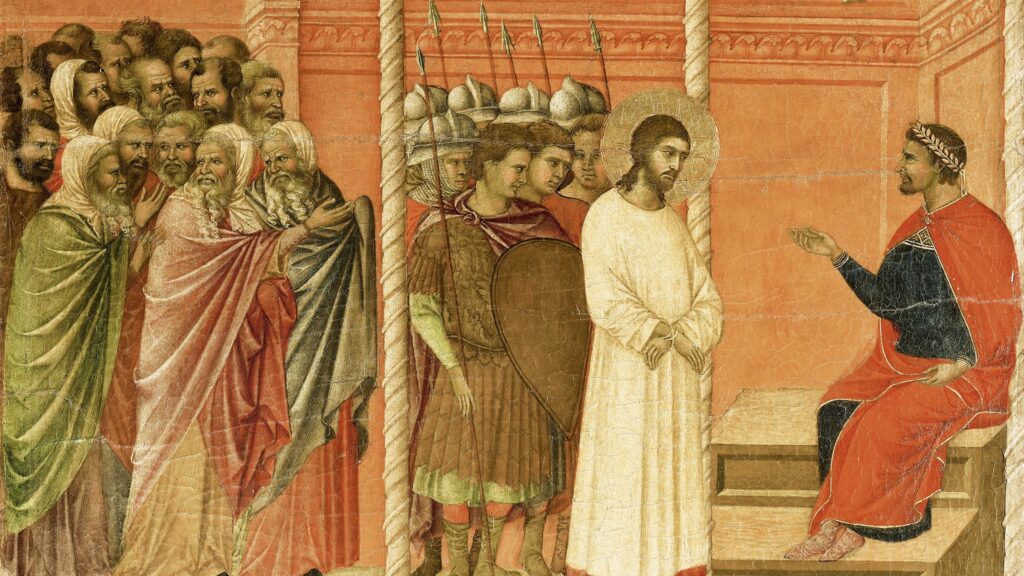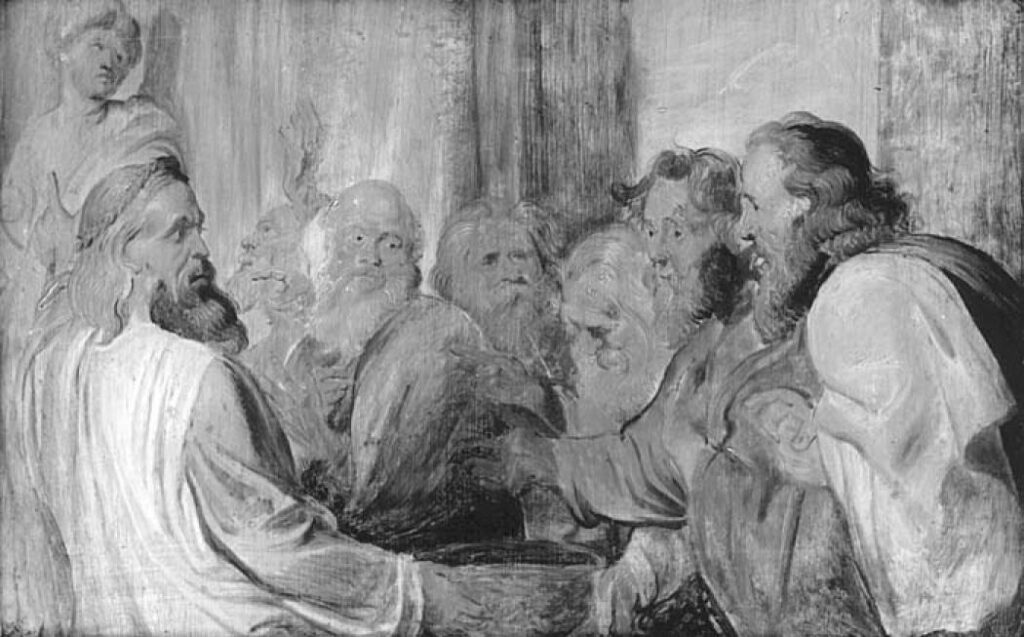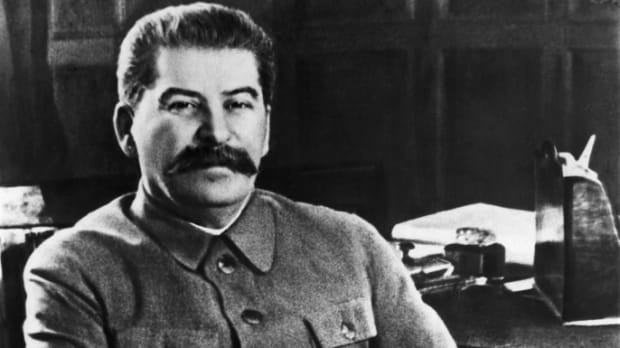Pontius Pilate, the governor of Judea who sentenced Jesus to crucifixion, believed that he was innocent. But if this was the case, why did he have a hand in the executive of Jesus of Nazareth?
It is ironic, considering he publicly declared that he was washing his hands off the decision to sentence to death the person who claimed to be the king of the Jews.
So, what happened? What pushed Pontius Pilate to send an innocent man and the son of God to his death?

Pontius Pilate: A Brief Introduction
Pontius Pilate was a governor of Judea, a Roman province, between years 26 and 37. Considering the heated politics of the time, this was quite a lengthy period—most officials didn’t stay in power very long. He served under Emperor Tiberius.
Pontius Pilate was a key character in the life of Jesus Christ, and he is even mentioned in one of the regularly recited prayers, The Apostles’ Creed. A line from the prayer states: “He suffered under Pontius Pilate; was crucified, died, and was buried.”
Interestingly, Pontius Pilate believed Jesus to be innocent.
The Arrest of Jesus Christ
What led to the arrest of Jesus Christ?
There are no official records of Jesus’s arrest, trial, and eventual crucifixion. It is difficult to determine the true charge against him. What was clear was that people, especially priests, took offense against the prophet who kept referring to himself as the son of God.
Jesus was arrested while praying in the Garden of Gethsemane. His disciples tried to fight off the arresting officers, but Jesus told them to stand down.
According to various accounts, Jesus was charged with blasphemy before the Sanhedrin, the highest ruling council at that time. Jewish leaders found Jesus disrespectful for claiming to be the son of God, which they thought to be an insult to their God.
Blasphemy was a serious crime at the time. Those charged were usually sentenced to death by stoning.
The Sanhedrin had around 70 members ruling for or against a suspect of a crime. Members were Pharisees, Sadducees, and priests, whom Jesus gravely angered. During the trial, the Sanhedrin was headed by the high priest Caiaphas, whom the gospels have said was the one who plotted the death of Jesus.
While the Sanhedrin can determine the guilt or innocence of a person, they cannot dole out the sentence. This is where Pontius Pilate came in—he sentenced Jesus to death by crucifixion.
Pontius Pilate Hesitates to Sentence Jesus
Pontius Pilate tried to get the crowd on Jesus’s side because he believed in his innocence. He may have been indecisive, but he wasn’t as ruthless as some historians made him out to be.
The four gospels, John, Luke, Mark, and Matthew, described the governor as a vacillating judge.
According to the Gospel of Mark, Pontius Pilate tried to question the crowd regarding the supposed crime that Jesus committed.
The gospel reads: “‘What shall I do, then, with the one you call the king of the Jews?’ Pilate asked them. ‘Crucify him!’ they shouted.’ ‘Why? What crime has he committed?’ asked Pilate. But they shouted all the louder, ‘Crucify him!’ So Pilate, wishing to satisfy the crowd, released for them Barabbas, and having scourged Jesus, he delivered him to be crucified.”
Some historians are critical of Mark’s account of the incident as they thought he was trying to shift the blame for Jesus’s death to the Jewish leaders.
In John’s version, Pontius Pilate wasn’t convinced of Jesus’ crimes and told the Jewish leaders to sentence him instead. However, the Jewish leaders reminded Pontius Pilate that they weren’t allowed to do so under Roman rule.
Still on the fence about punishing Jesus, Pontius Pilate instead offered to release the so-called king of Jews during Passover, as was the tradition.
According to the gospel of John: “And after saying this, he came out again to the Jews and said to them, ‘I find no grounds at all for charges in His case. However, you have a custom that I release one prisoner for you at the Passover; therefore do you wish that I release for you the King of the Jews?’ So they shouted again, saying, ‘Not this Man, but Barabbas.’ Now Barabbas was a rebel.”
In the Gospel of Matthew, Pontius Pilate realized that Jesus was handed to him merely out of envy. He gave the people the choice of who to release: Jesus, who called himself a king, or Barabbas, a notorious criminal. But the crowd wanted Jesus executed.
“When Pilate saw that he could not prevail at all, but rather that a tumult was rising, he took water and washed his hands before the multitude, saying, ‘I am innocent of the blood of this just Person. You see to it,’” read the gospel.

In Luke, Pontius Pilate was adamant that Jesus was innocent and should be released: “You have brought this Man to me, as one who misleads the people. And indeed, having examined Him in your presence, I have found no fault in this Man concerning those things of which you accuse Him.”
In all four versions, Pontius Pilate was convinced of Jesus’s innocence. However, he didn’t have the will to put his foot down and go against the pressure of the crowd and the Jewish leaders.
In the end, Pontius Pilate caved to the pressure and sentenced Jesus to die by crucifixion. He made it quite clear that it wasn’t what he wanted to do.
What Happened to Pontius Pilate After the Crucifixion?
Pontius Pilate’s brief interaction with Jesus ensured his place in history. But after that, traces of what happened to him have been less interesting to many historians. He reportedly died by suicide six years after his hand in Jesus’ crucifixion.
He likely had a positive impact as governor—a 10-year term was unheard of at that time. Unfortunately, all the other things he did were overshadowed by his cowardice in saving an innocent man from crucifixion.

